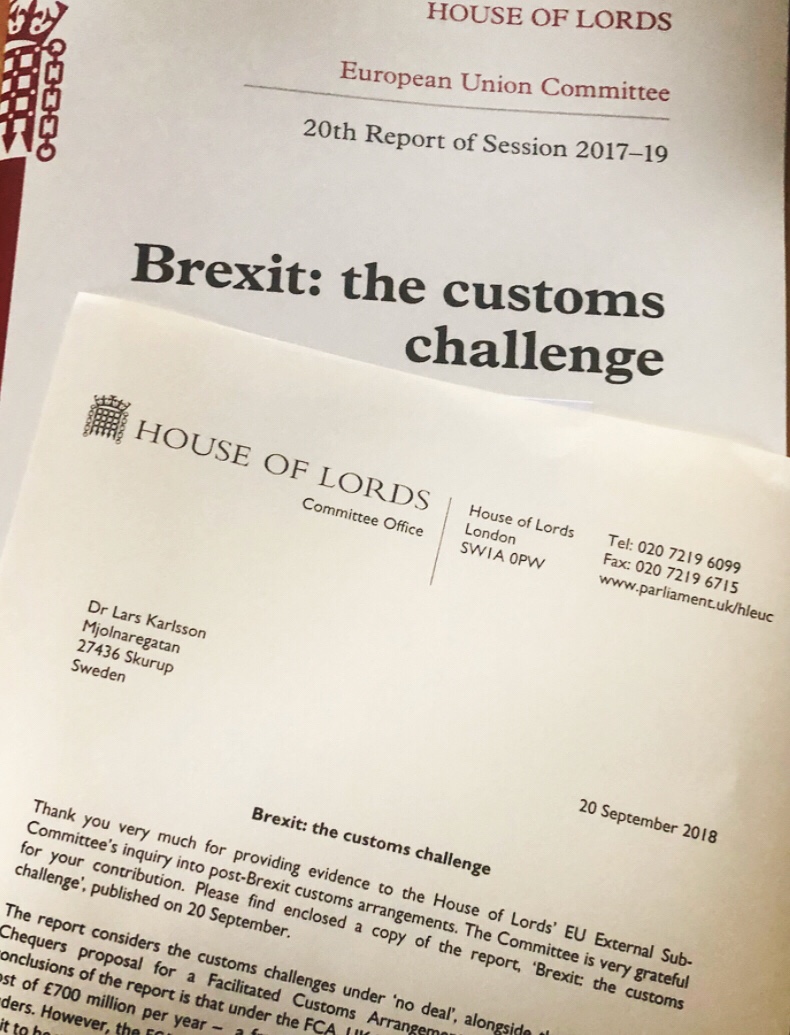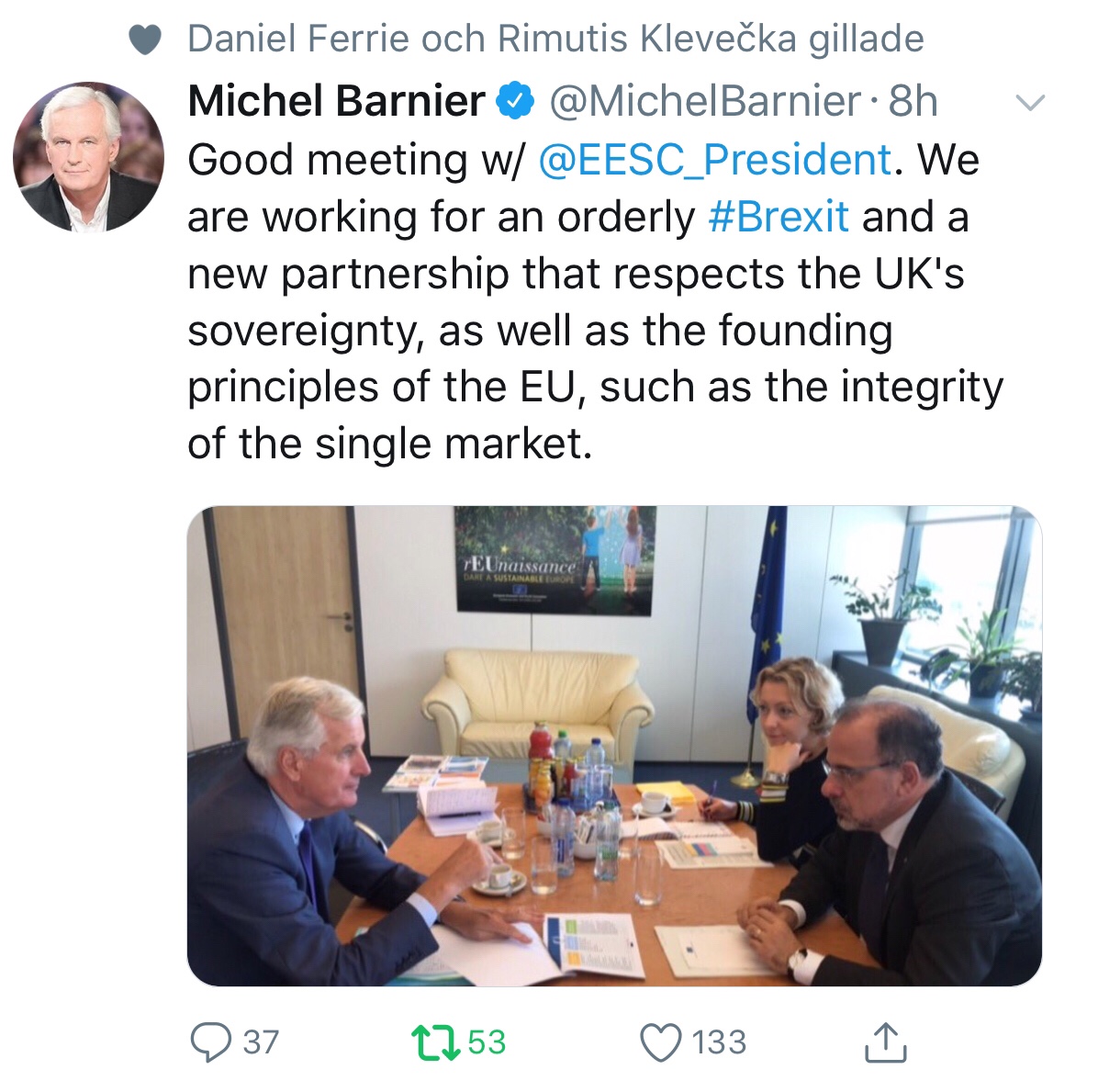Today I got a personal letter of gratitude from the UK Parliament House of Lords EU External Affairs Sub-Committe for my advisory expert work on Brexit.

I contributed to the Committees’ inquiry into post-Brexit Customs arrangements.
’The Committe is very grateful for your contribution’ writes Baroness Verma, Chairman of the Committee.
I am very proud to serve and help in any way I can.
Brexit is about Customs, Trade and Borders. I have worked professionally with these items all my life, having worked on reform projects in this field in more than 120 countries, having being involved in all referenced best practice examples to date, having designed borders in all regions and having visited and seen more than 1000 border crossings around the world, I do consider myself as an expert on this topic. If any of my experience can support the development of the best possibme future border arrangements between UK and EU I will certainly do everything in my power to help.
Negotiations are on-going. We need a SmartBorder minimum friction solution that respects the integrity of the single market and that at the same time facilitates important UK trade.

While still enabling necessary border formalities for safety and security, based on modern customs tehniques, state-of-the-art technology and trusted trader partnerships.
Is it possible to do ? Yes, it is. Can we do it? Yes, we can.
Guardian reports that delays of only half an hour at UK ports and the Irish border would risk one in 10 British firms going bankrupt, according to a report laying bare the severe risk to the economy from no-deal Brexit.

According to the Chartered Institute of Procurement and Supply (CIPS), failure to reach a deal with Brussels before March could trigger massive queues of trucks at British borders from a vast increase in paperwork and checks to clear customs.
From a survey of more than 1,300 UK and EU-based supply chain managers, the personnel responsible for navigating customs controls for their companies, a tenth at UK firms said it would risk bankruptcy if goods were delayed by between 10 and 30 minutes at the border.
Source: The Guardian






You must be logged in to post a comment.